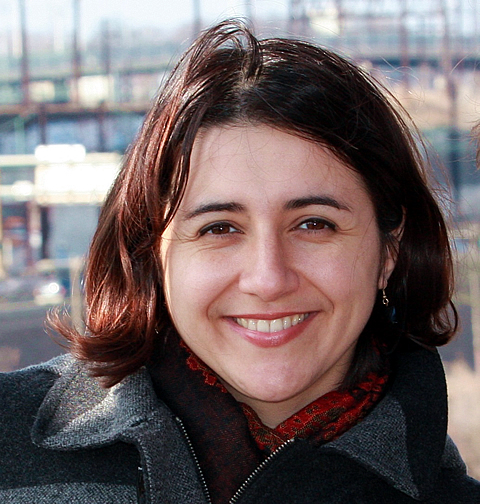
Trainee Spotlight: Maria Radu, MD, PhD
-
Maria Radu, MD, PhD

Postdoctoral Associate
Dr. Jon Chernoff’s lab
Fox Chase Cancer Center
[email protected]Biography
I was born in a small picturesque town in Northeast Romania, a region known for its deeply embedded traditions and friendly inhabitants. Being raised by science-loving parents, it was only natural that I would also develop a passion and profound respect for all rigorous academic disciplines. I thus graduated from high school with a major in mathematics and physics. My strong background in exact sciences, together with my long love for biology, led me to to pursue a career in medicine. With this goal in mind, I graduated with a MD from “Gr.T. Popa” School of Medicine and Pharmacy, Iasi, Romania in 2002. During medical school, in between clinical rotations, I volunteered in a research lab within the Pharmacology Department where I studied the effects of Rifampicin and ethanol on the immune system in a mouse model of tuberculosis. This peek into scientific research radically changed my focus away from medicine and toward a life in a lab.
I pursued my newly found passion for research by applying for PhD programs in the US. In the fall of 2002, I joined the Department of Microbiology and Immunology at Temple University School of Medicine in Philadelphia. Under Dr. Kenneth Soprano’s guidance, I studied the importance of post-translational modifications of the cyclin dependent kinase inhibitor, p27, in mediating the sensitivity of ovarian carcinoma to retinoic acid treatment.
After receiving my PhD in July 2008, I joined Dr. Jonathan Chernoff’s lab as a Postdoctoral Associate at Fox Chase Cancer Center. During my time at Fox Chase, I took on several projects aiming to understand the role of p21 activated kinases (Pak) in cancer. My future plans are to continue to investigate the molecular pathways and biological events associated with development and progression of cancer in an academic or industry setting. At the same time, I feel strongly about the need to spread the word about the amazing world of science and discoveries and I plan to do my share in communicating various science advances by participating in career talks, seminars or scientific forums.
Research Overview
p21-activated kinases (Paks) have been shown to regulate cytoskeleton rearrangements, cell proliferation, attachment, and migration in a variety of cellular contexts, including endothelial cells. However, the role of endothelial Pak in embryo development has not been reported, and currently, there is no consensus on the endothelial function of individual Pak isoforms in adult tissues, in particular p21-activated kinase 2 (Pak2), the main Pak isoform expressed in endothelial cells. To address these unknowns, we employed genetic and molecular studies that showed that Pak2, but not Pak1, is a critical mediator of development and maintenance of endothelial cell function in adult tissues. We found that during development Pak2 has a critical role in the endothelium since deletion of Pak2 results in early embryo lethality. In the adult, we observed that knockout of Pak2 in the vasculature results in endothelial cell apoptosis and increased vascular permeability, which closely resembles the phenotype induced by the loss of Erk5. These data, coupled with the observation that activating the Mek5/Erk5 pathway partially rescues the vascular defects induced by Pak2 deletion suggests that Pak2 and Erk5 act in the same pathway to control maintenance of the vasculature. These results imply the existence of a hitherto, unsuspected Pak2 -> protein x -> Mek5 -> Erk5 pathway and open new avenues in understanding the effects of Pak inhibitors.
Featured publication
Radu M, Lyle K, Hoeflich KP, Villamar-Cruz O, Koeppen H, Chernoff J. p21-Activated Kinase 2 Regulates Endothelial Development and Function through the Bmk1/Erk5 Pathway. Mol Cell Biol. 2015 Dec;35(23):3990-4005.
